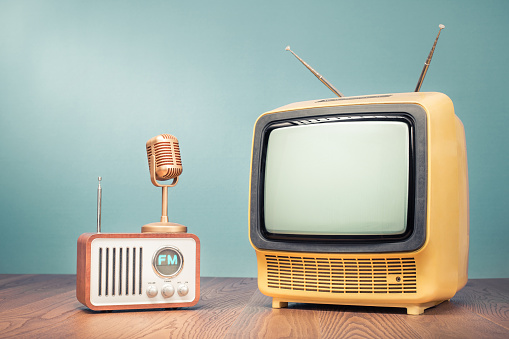Are you a fan of radio or television? Have you ever wondered how these mediums came to be, or how they have influenced our lives over the years? From the earliest days of radio broadcasting to the digital age of television, the world of broadcast has undergone a remarkable transformation. In this article, we'll explore the history, technology, and cultural impact of radio and television, and how they continue to shape our world today.
The Birth of Radio: From Morse Code to Voice Broadcasting
Before there was radio, there was telegraphy. In the mid-19th century, Samuel Morse invented the telegraph, which allowed people to transmit messages over long distances using a series of dots and dashes. This technology would pave the way for radio broadcasting, which began in the early 20th century.
The first voice broadcast was made by Canadian inventor Reginald Fessenden on Christmas Eve in 1906. Fessenden, who had been experimenting with wireless telegraphy, transmitted a brief speech and a violin solo over the airwaves. This event marked the beginning of the age of radio broadcasting, which would go on to become a global phenomenon.
Over the next few decades, radio technology evolved rapidly, with new stations popping up around the world. Radio became an important source of news, entertainment, and information for people everywhere. During World War II, radio played a crucial role in keeping people informed about the progress of the war and providing a sense of unity during a time of crisis.
The Rise of Television: From Black-and-White to High Definition
While radio was still in its infancy, a new form of broadcast was beginning to emerge: television. The first television broadcasts were experimental and limited to a small audience, but by the 1950s, television had become a household staple in many parts of the world.
Early television sets were bulky and expensive, and the picture quality was poor compared to today's high-definition standards. However, people were fascinated by the new medium, and television programming quickly became a dominant force in popular culture.
The 1960s and 1970s saw the rise of color television and the emergence of cable TV, which allowed people to access more channels and a wider range of programming. By the 1990s, satellite TV and digital technology had revolutionized the way people watched television, making it possible to access hundreds of channels from anywhere in the world.
The Impact of Broadcast: From the Moon Landing to Reality TV
The impact of radio and television on society has been profound. These mediums have brought us some of the most important events in history, from the moon landing in 1969 to the 9/11 terrorist attacks in 2001. They have also given us some of the most iconic moments in entertainment, such as Elvis Presley's appearance on The Ed Sullivan Show and the premiere of Star Wars.
But broadcast has not only given us moments of triumph and joy. It has also been responsible for some of the most divisive and controversial programming in history. Reality TV shows like Survivor and Big Brother have sparked debate over the ethics of voyeurism and the effects of media on society. Talk radio hosts have been criticized for spreading misinformation and promoting hate speech.
Despite the controversies, radio and television continue to shape our world today. They have given us a platform to share our ideas, our stories, and our art with millions of people around the globe. They have connected us to events and experiences that we might otherwise never have known about. And they have influenced our culture and our values in ways that are both profound and complex.
